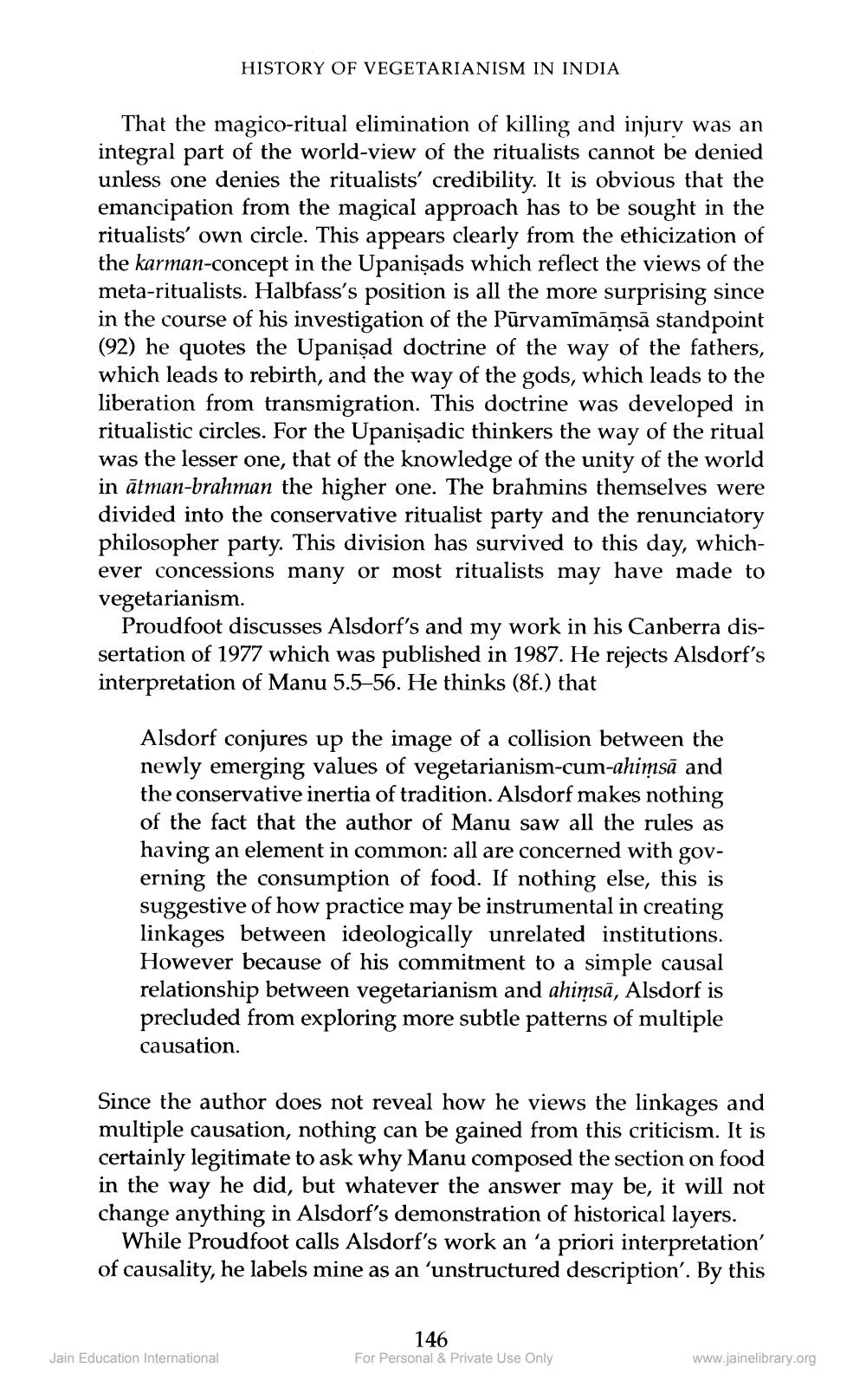________________
HISTORY OF VEGETARIANISM IN INDIA
That the magico-ritual elimination of killing and injury was an integral part of the world-view of the ritualists cannot be denied unless one denies the ritualists' credibility. It is obvious that the emancipation from the magical approach has to be sought in the ritualists' own circle. This appears clearly from the ethicization of the karman-concept in the Upanişads which reflect the views of the meta-ritualists. Halbfass's position is all the more surprising since in the course of his investigation of the Pūrvamīmāmsā standpoint (92) he quotes the Upanişad doctrine of the way of the fathers, which leads to rebirth, and the way of the gods, which leads to the liberation from transmigration. This doctrine was developed in ritualistic circles. For the Upanişadic thinkers the way of the ritual was the lesser one, that of the knowledge of the unity of the world in ātman-brahman the higher one. The brahmins themselves were divided into the conservative ritualist party and the renunciatory philosopher party. This division has survived to this day, whichever concessions many or most ritualists may have made to vegetarianism.
Proudfoot discusses Alsdorf's and my work in his Canberra dissertation of 1977 which was published in 1987. He rejects Alsdorf's interpretation of Manu 5.5–56. He thinks (8f.) that
Alsdorf conjures up the image of a collision between the newly emerging values of vegetarianism-cum-ahimsā and the conservative inertia of tradition. Alsdorf makes nothing of the fact that the author of Manu saw all the rules as having an element in common: all are concerned with governing the consumption of food. If nothing else, this is suggestive of how practice may be instrumental in creating linkages between ideologically unrelated institutions. However because of his commitment to a simple causal relationship between vegetarianism and ahimsā, Alsdorf is precluded from exploring more subtle patterns of multiple causation.
Since the author does not reveal how he views the linkages and multiple causation, nothing can be gained from this criticism. It is certainly legitimate to ask why Manu composed the section on food in the way he did, but whatever the answer may be, it will not change anything in Alsdorf's demonstration of historical layers.
While Proudfoot calls Alsdorf's work an “a priori interpretation' of causality, he labels mine as an 'unstructured description'. By this
146 For Personal & Private Use Only
Jain Education International
www.jainelibrary.org




